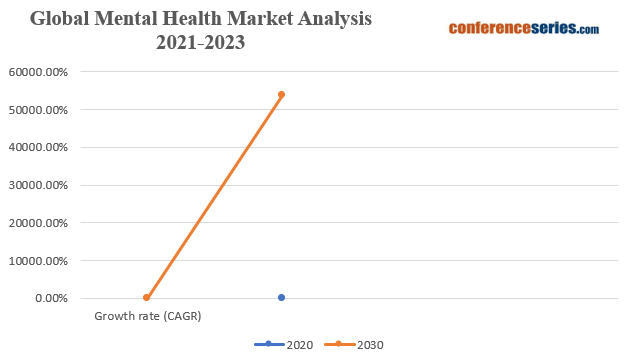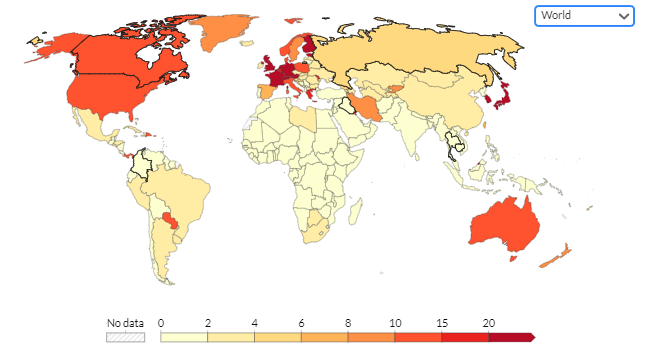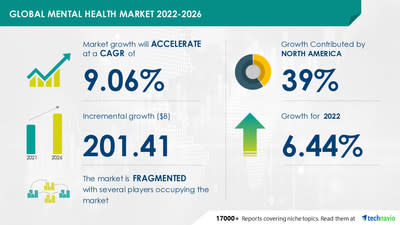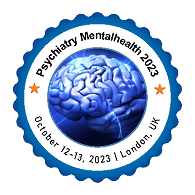Sessions and Tracks
Track 1: Psychiatry
Psychiatry is the clinical uniqueness that diagnoses and treats intellectual problems, commonly the ones requiring remedy. Psychiatrists are skilled clinical medical doctors, they can prescribe medications, and that they spend plenty in their time with sufferers on medicine control as a route of treatment. Starting with the identity of the predominant mental ailments and the way they're considered difference from normality. Psychology is the observe of behaviour and thoughts, embracing all components of aware and subconscious revel in as well as idea. Psychologist’s cognizance drastically on psychotherapy and treating emotional and mental struggling in patients with behavioural intervention.
Track 2: Child and Adolescent Psychiatry
Child and Adolescent psychiatry is a branch of psychiatry that focusses on diagnosis, treatment and prevention of mental disorders in children and adults. Child psychiatry is otherwise called Paediatric psychiatry tremendous developments have been seen in the past two decades child and adolescent psychiatry is a challenging speciality. 75% of adult mental health problems have been started before the age of 18. ADHD, Autism is the neurodevelopmental disorders arising in childhood disruptive behaviour, feeding and toileting difficulties, depression are the emotional Disorders.
Track 3: Mental Illness
Mental illness is called mental health disorders it affects persons thinking, mood. One in five adults experience mental health disorders. Some disorders like Autism, Conduct Disorder have significant implications for the child's development and modification in grown-up life. It examines the bio psychosocial factor that impacts the improvement and course of mental issue and treatment reaction to different intercessions.
Track 4: Fatigue and Stress at Work place
Organisations have to recognise that stress at work creates a serious threat to employee health and safety. An organisation needs to take the essential measures to keep employees from experiencing unwanted stress.
-
Make sure the place of work is secure.
-
Ensure that everyone has the appropriate training for their position.
-
Recognising work-related stress as a real issue will help to de-stigmatize it.
-
Talk about problems and complaints with the staff, and when possible, take the necessary measures.
-
Create a stress management strategy with input from the staff.
-
Encourage a culture where employees have more control over their tasks, opportunities for advancement, and safety.
Track 5: Mental Health and Psychiatric Nursing
Mental health refers to our cognitive, behavioural, and emotional wellbeing. Biological factors like genes or brain chemistry, life experiences such as trauma or abuse, family history of mental health problems are the factors which contribute to mental health problems. People with these mental health problems can get better and recover easily. Psychiatric Nursing is the position of a nurse appointed who was specialised in mental health to help the patients overcome their psychiatric disorders and the stigma associated with it living their best lives. Psychiatric Nurses will work in Hospitals, Psychiatric Hospitals, Home healthcare organisations, prisons, Outpatient mental health organisations and schools that serve people with emotional and mental health issues Nursing and mental health.
Track 6: Neuroscience and Neuropsychiatry
Neuroscience is the study of the brain and nervous system in both humans and non-human animals, and in both health and disease. The subject neuroscience has grown rapidly and now covers multiple areas including novel technologies and research into many brain functions and disorders, as well as applications as diverse as education, artificial intelligence and the law. Invasive Monitoring, Neuropsychological Testing, Eye-Tracking, Event-Related-Potentials, Kinematics, structural MRI, functional MRI, Tractography, Source EEG are some of the techniques in Neuroscience and Neuropsychiatry. Clinical Neuropsychiatry is the area of overlap between neurology and psychiatry and includes neurodegeneration, neuroinflammation, Epilepsy, brain injury and functional neurological disorders. It is an exciting and developing area of study.
Track 7: Addiction and its Disorders
Addiction is a complex condition, a brain disease that is manifested by compulsive substance use despite harmful consequence. It is difficult to control the use of the substance by a person with substance use disorder. Opioid Use Disorder, Gambling Disorder, Internet Gaming Disorder, Caffeine Intoxication and Withdrawal are some of the addiction disorders. Addictions are diagnosed under the category substance use and addiction disorders. Substance use disorders have a range of psychological, physical, and social effects that can drastically reduce people's quality of living.
Track 8: Schizophrenia
Schizophrenia refers to a group of severe, disabling psychiatric disorders marked by withdrawal from reality, illogical thinking, possible delusions and hallucinations, and emotional, behavioural, or intellectual disturbance. It affects 1.1% of the population above age 18, which is estimated to be 51 million people worldwide. Schizophrenia is linked to many factors the exact cause is unknown.
Track 9: Stress, Anxiety and Depression
Stress is that the response to a threat in an exceedingly state of affairs anxiety is that the reaction to fret. Chronic stress will have an effect on your health, inflicting symptoms from headaches, high vital sign, and pain to heart palpitations, skin rashes, and loss of sleep. Chronic anxiety will be weakening and cause irrational thoughts and fears that interfere together with your lifestyle. Depression and anxiety will occur at identical time. In fact, it’s been calculable that forty five % of individuals with one mental state condition meet the standards for 2 or a lot of disorders.
Track 10: Sleep Disorder and Medicine
Sleep is a complex biological process. While you are sleeping, you are unconscious, but your brain and body functions are still active. Insomnia, Sleep apnoea, Restless leg syndrome, Hypersomnia, Circadian rhythm disorders, Parasomnia are some of the major sleep disorders. Mental illness line Depression and Anxiety, Nerve disorders can cause sleep disorders. Anti-Parkinson drugs, Benzodiazepines, Non-benzodiazepine hypnotics, Melatonin receptor stimulator, Opiates, Anticonvulsants, Anti-narcoleptics, Orexin receptor antagonists are some of the drugs used in the treatment of sleep disorders.
Track 11: Behavioural Disorders of Eating
Most frequently, mood and anxiety disorders, Obsessive-compulsive disorder, and alcohol and substance use disorders occur together with eating disorders. There is evidence that suggests some people are more likely to develop eating disorders than others as well, but eating disorders can also affect people who have no family record of the problem. Treatment should address the dietary, behavioural, psychological, or other medical issues that arise. Treatment resistance, denial of a dietary or obesity issue, or concern about changing eating habits have become prevalent. But persons with behavioural eating disorders may resume healthy eating adheres to given the right medical attention, and recover their emotional and Psychological health.
Track 12: Research, Education and Case studies on Mental Health
According to world Health Organization (WHO), there are in excess of 450 million people with mental, neurological, or social issues far and wide (WHO, 2005a). Mental health issues are evaluated to speak to 13% of the overall weight of infection, essentially from unipolar and bipolar confusion, alcohol and substance-use disarranges schizophrenia, and dementia. Regardless, in various countries, passionate health is agreed a low need; for example, a 2005 WHO examination found that around 33% of low-pay countries who itemized a mental prosperity spending plan spent under 1% of their total prosperity spending plan on enthusiastic wellbeing.
Track 13: Geriatric Psychiatry
Geriatric Psychiatry is field that focuses on dressing, preventing, evaluating and diagnosing different late-life Mental health issues and psychiatric syndromes that affect older adults who are 65 years of age & older such as Anxiety, Depression, psychoses personality disorders, sleep disturbances, Dementia, alcohol & substance abuse, and others.
Track 14: Pediatric Psychiatry
Pediatric psychiatry is a division of psychiatry that spotlights at the remedy, analysis and anticipation of mental problems in children, children, and their households. It researches the Bio-psychosocial factors that affect the advancement and direction of those mental difficulties and remedy reactions to distinct mediation.
Track 15: Alzheimer diseases
Alzheimer’s disease is the most common type of madness that affects aged grown-ups and isn't a normal phase of aging. It has no cure or treatment that affects the complaint process in the brain. Complications from significant loss of brain function, similar as dehumidification, starvation, or infection, can lead to mortality in advanced stages of the condition. Madness can be a general term for a decline in capability severe enough to intrude with life. Madness is a broad description which includes numerous different symptoms, word- chancing difficulties, disabled judgment, and problems with day- to- day conditioning, which are caused by injury or loss of brain cells.
· Vascular madness
· Madness with Levy bodies
· Neurological examination
Why should you attend?
-
Understand and master the rapid and dramatic changes in the practices of psychiatry and behavioral health.
-
Learn about clinical innovations to improve patient care.
-
Identify and improve mental health disparities in the community.
-
Network with colleagues and share solutions to the challenges you face.
-
Earn 10-15 CME credits.
-
Meet and network with the leaders in psychiatry and Psychosomatic Medicine and related disorders.
-
Participate in career Development sessions.
-
Share experiences, insights and strategies in interactive peer-to peer round tables.
-
Hear more perspectives in one place – from large medium and small organisations from Pharma, biotech and academia.
-
Learn about new treatment options to help your patients.
Market Analysis
Al Baraha Global Psychiatry and Psychology market contributes to $34.5 billion which includes major countries such as US (74%), Europe (64%), japan (8.3%), and UAE (7.8%).
Market Analysis for Abuse and Addiction Treatment
Substance Abuse Treatment Market size was valued at USD 10 Billion in 2020 and is projected to reach USD 18.7 Billion by 2028, growing at a CAGR of 8% from 2021 to 2028.
Market Analysis for Pediatric Medicines
The global pediatric market should grow from $92.6 billion in 2019 to reach $116.6 billion by 2024 at a compound annual growth rate (CAGR) of 4.7% for the period of 2019-2024.
Market Analysis of Anti-Psychotic Drugs
The global antipsychotic drugs market size was valued at $12,417.60 million in 2020, and is estimated to reach $26,041.00 million by 2030, growing at a CAGR of 8.0% from 2021 to 2030. Antipsychotic drugs are medications used in treatment of psychosis including schizophrenia and bipolar disorder.
Market Analysis for CNS Biomarker Market
The central nervous system biomarkers market is projected to register a CAGR of 7.5% during the forecast period, with revenue of approximately USD 4,652 million in 2020, and it is expected to reach USD 7,160 million by 2026. COVID-19 cases across the world had a profound impact on the CNS biomarkers market.
Fund Allotment to Psychiatry Research
NIHR- National Institute for Health Research- $1.05 bi
HBP- Human Brain Project - $ 1.3bi
BRI- Brain Research Initiative -$ 0.1 bi
The total cost of treatment of anxiety and depression disorders across 36 countries worldwide is estimated to be $147 billion by 2030. The National Institute of Mental Health (NIMH) is the largest funder of research on mental disorders in the world. Mental illness’ and ‘Mental disorder’ are the terms used to describe a spectrum of mental health and behavioral disorders in Australia. National Survey of Mental Health and Wellbeing was started in 1990 in Australia. The role of this survey is to measure the number of population and the amount of disability with mental health disorders and mental health services used by the people. The importance of fine mental state and its impact on Australians have long been recognized by the Australian government and every one state and territory governments. Over the last three decades, these governments have worked along, via the National Mental State Strategy, to develop mental state programs and services to raised address the mental state needs of Australians.
In 2015-16, Australian Institute of Health and Welfare was estimated that around $9.0 billion or $373 per person was spent on mental health-related services. Out of 9.0 billion USD $5.4 billion (59.8%) was funded by state and territory governments, $3.1 billion (35%) were funded by the Australian government and $466 million (5.2%) was funded by private health insurance funds.
Funding of Projects
Brain Research Initiative
Brain Research through Advancing Innovative technology is a research effort launched by the Obama Administration to map the human brain working. In FY 2014, a $100 million fund was issued in name of the National Institutes of Health.
National Institute for Health Research
In 2012/13, NIHR had a total research cost of £958.9m, research program’s- £208.9m and on infrastructure-£618.9m. The Faculty members of NIHR including senior investigators and fellowships received £100m.
Human Brain Project
The Human Brain Project is the one of the longest running project; the project cost is estimated at 1.19 billion euros and planned to last ten years (2013-2023).
PROJECTIONS: GROWTH IN NEXT 5 TO 10 years
Psychiatrists - Demand for Psychiatrists are projected to increase from ∼18,180 to 21,440 by 2025.
The Human Brain Project- The main goal of the HBP is to deliver a collaboratively built first draft "scaffold" model and simulation of the human brain by 2023.
Healthy People 2020- It is a statement of national health objectives designed to identify the most significant preventable threats to health and to establish national goals to reduce these Psychiatry problems.
WPA Member Societies and Sections plan to increase significantly the number of Psychiatrists in the near future, and to upgrade the pattern of distribution of the journal. In addition to the original English edition, a Chinese edition of the journal is already being produced. Contacts are ongoing for the production of Spanish, a Portuguese and a Japanese edition.
The journal is also produced in an electronic version, which is sent by email to the Presidents of all WPA Member Societies and the Chairpersons of all WPA Sections. This version is already included in the website of the WPA and of several of its Member Societies and Sections.
Global Burden of Disease: A collaborative Project (2005 to 2030)
WHO launched a number of global public health projects, including the Public Health and Global Initiative on Psychiatry and whose purpose is to increase professional and public awareness of the occurrence, extent and costs of disorders and to emphasize the need to provide Psychiatric & psychological care at all levels including primary healthcare.
Human Connectome:
The NIH Human Connectome Project is an ambitious effort to map the neural pathways that underlie human brain function. The objective of Project is to acquire and share data about the structural and functional connectivity of the human brain.
ROOTS: Investigating the origins of adolescent psychopathology
The project will not restrict itself to the study of depression but will encompass many aspects of teenage mental health throughout the demanding adolescent period. The aim is to determine the relative contributions that specific genetic, physiological, psychological and social variables make to the overall risk for psychopathology during adolescence. Teenagers are recruited into the study at age 14 and will be followed through the adolescent period until they reach 17-18.
Psychiatrists Market Definition
The psychiatrists market consists of sales of psychiatrists services and related goods by entities (organizations, sole traders and partnerships) that provide the diagnosis, treatment and prevention of mental, emotional and behavioral disorders. The psychiatrists industry includes establishments of licensed practitioners having the degree of M.D. (Doctor of Medicine) or D.O. (Doctor of Osteopathic Medicine) that provide palliative care, treat psychosomatic disorders, mental disorders and others. Psychiatrists operate private or group practices in their own offices (e.g., centers, clinics) or in the facilities of others, such as hospitals or health maintenance organization (HMO) medical centers.

The global mental health market was valued at $383.31 million in 2020, and is estimated to reach $537.97 million by 2030, growing at a CAGR of 3.5% from 2021 to 2030.

Death rates from mental health and substance use disorders, 2017 Age-standardized direct death rates from mental health and substance use disorders, measured per 100,000 individuals. These include alcohol use, drug use, and eating disorders. Figures do not include deaths resultant from suicide, which in some cases are related to mental health and substance use disorders.
Psychiatrists Market Trends
Major trends influencing the psychiatrists market include:
Discoveries In Psychiatric Genetics
The new studies associated with psychiatric genetics are discovering complex disorders related to mental health. Psychiatric genetics studies the role of genetics in the causes of mental health and provides knowledge to improve treatment methods. In 2019, scientists discovered causes related to anorexia, an eating disorder. The researchers found that the problems related to this disorder were driven by metabolism. The researchers compared nearly 17,000 anorexia symptomatic people’s DNA with more than 55,000 healthy controls. The study revealed eight genes that linked anorexia to anxiety, depression and obsessive compulsive disorder, all of which was expected. Ultimately, these genetic discoveries will provide clues to the major mental disorders.
Adoption Of Mobile And Connected Technologies For Psychiatric Diagnosis
Mobile and connected technologies are being implemented by psychiatric cares to assist in diagnosing and treating mental illness. Some developments such as the evolution of electronic medical records to document, communicate, and support clinical decision-making, are quickly becoming commonplace. These technologies offer real-time visibility of patient health through active and passive data collection. New e-tools can also monitor patients’ conditions such as behavioral patterns, and physiological sensing. It enables psychiatric care providers to create novel diagnostic tests for psychiatry.

Opportunities And Recommendations In The Psychiatrists Market
Opportunities –The top opportunities in the global psychiatrists market will arise in the psychiatric services for mood (anxiety and depression) disorders segment, which will gain $19.2 billion and the psychiatrists market size will gain the most in the USA at $19.1 billion.
Recommendations – To take advantage of the opportunities, The Business Research Company recommends the psychiatry service providers to consider providing cognitive–behavioral therapy interventions, collaborate across verticals and industries to provide value-based healthcare, focus on providing treatment services and preventive and promotional activities delivered by primary care centers, and educate and create awareness programs about mental health problems.
Psychiatrists Market Segmentation
The psychiatrists market is segmented by type of mental disorder, by type of patient and by geography.
By Mental Disorder Type- The psychiatrists market is segmented by mental disorder type into
a) Alcohol Abuse Mental And Behavioral Disorders
b) Psychoactive Substance Use Mental And Behavioral Disorders
c) Schizophrenia, Schizotypal And Delusional Disorders
d) Mood (Anxiety And Depression) Disorders
e) Other Mental And Behavioral Disorders
Psychoactive substance use mental and behavioral disorders had the highest growth rate of nearly 13.5% during the historic period.
By Patient Type - The psychiatrists market is segmented by patient into
a) Inpatient
b) Outpatient
psychoactive substance use mental and behavioral disorders outpatient market had the highest growth rate of nearly 15.0% during the historic period.
By Geography- The psychiatrists market is segmented into North America, USA, Western Europe, UK, Germany, France, Spain, Italy, Asia, China, Japan, India, Australia, Russia, Brazil, Middle East, Africa.
North America is the largest market for psychiatrists, accounting for 47.9% of the global market. It was followed by Western Europe, Asia Pacific, South America, Middle East, Eastern Europe and Africa. Going forward, Middle East and Africa will be the fastest growing regions in the psychiatrists market.
















